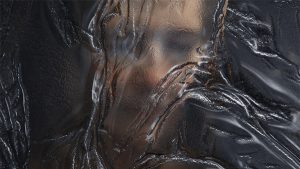The Silent Tears project

OII Australia board member Candice participated in the Silent Tears project this year. The multimedia exhibition by Belinda Mason, with Denise Beckwith, Dieter Knierim and Margherita Coppolino, reveals the lived experience of “20 women with disability who were subjected to violence and women with disability who have acquired disability as a result of violence”. Belinda Mason says:
“Without stories, there is silence. Without stories told, we are voiceless. Without our stories heard, we are invisible. It is harder, when the stories are hard to hear and impossible to imagine.”
Candice talks about her experience, as a woman with XXY sex chromosomes, of being pushed to talk testosterone to make her a “real man”:
“My Silent Tears come from so many years of being misunderstood, of an inability to connect with my peers and always being on the outer, of a medical system falsely believing I was one thing, whilst I knew myself to be another, of being told my life would not be worth living if I did not adhere to such medical treatment, and of having no one around me, who understood my pain and suffering”
The exhibition is touring, including at the UN in New York and Geneva. It is a powerful experience, and highly recommended.
Sydney Ideas event at the University of Sydney
With Candice’s participation, Morgan spoke at a Sydney Ideas event at the University of Sydney Law School, on the Silent Tears project, on 6 April 2016.
Morgan participated in a panel with Susan Salthouse (member of the COAG Advisory Panel to reduce violence against women), Megan Mitchell (National Children’s Commissioner at the Australian Human Rights Commission) and Associate Professor Kirsty Foster (Medical Education, Associate Dean (International) and Head Global Health, Sydney Medical School). The event was chaired by Professor Gwyneth Llewellyn, (Director of Centre for Disability Research and Policy, the University of Sydney). Many participants in the project also spoke.
Morgan was asked to speak on “identity”:
“Intersex identity is commonly misunderstood. For a great many intersex people, intersex is a political identity. It is a way of asserting the acceptability and dignity of a stigmatised embodiment – in much the same way that people identify as women, as disabled, or Aboriginal. All of these identities or labels are intersectional: it’s possible to be an intersex woman with a disability.
“Yet intersex is commonly framed as a gender identity. The difficulty with that is that intersex people have many different gender identities, as well as 2 different birth sex assignments. Like trans people, our actual gender identities are often denied. But uniquely, our legal sexes are also denied. And very many of us have an intersex trait or a diagnosis, or our chromosomes…”
We would like to thank Belinda Mason, Denise Beckwith, and colleagues, and the organisers of the Sydney Ideas event for supporting and encouraging Candice’s involvement in the project.
You must be logged in to post a comment.